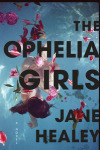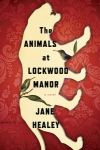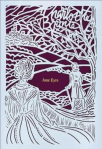Theresa Smith's Blog, page 60
January 12, 2021
Book Review: A Keeper by Graham Norton
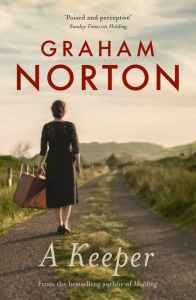
*** SHORTLISTED FOR THE NATIONAL BOOK AWARDS ***
From the bestselling author of HOLDING comes a masterly tale of secrets and ill-fated loves set on the coast of Ireland.
Dear Lonely Leinster Lady,
I’m not really sure how to begin . . .
The truth drifts out to sea, riding the waves out of sight. And then the tide turns.
Elizabeth Keane returns to Ireland after her mother’s death, intent only on wrapping up that dismal part of her life. There is nothing here for her; she wonders if there ever was. The house of her childhood is stuffed full of useless things, her mother’s presence already fading. And perhaps, had she not found the small stash of letters, the truth would never have come to light.
40 years earlier, a young woman stumbles from a remote stone house, the night quiet but for the tireless wind that circles her as she hurries further into the darkness away from the cliffs and the sea. She has no sense of where she is going, only that she must keep on.
This compelling new novel confirms Graham Norton’s status as a fresh, literary voice, bringing his clear-eyed understanding of human nature and its darkest flaws.
My Thoughts:What an incredible novel this was! Graham Norton has fast become my go-to author when I’m in need of a guaranteed good read or a reading reset. I love his ‘voice’ which just leaps right off the page. Lyrical and warm, full of wit and on point humour to balance out the more sombre moments. This story was all the more enjoyable for its unexpected plot turn. But first, how beautiful is this:
‘The rooms weren’t empty, they were filled with the absence of someone. The dead don’t vanish, they leave a negative of themselves stamped on the world.’
A Keeper is a dual narrative. We’re with Elizabeth in the present day and her mother, Patricia, forty years earlier. Elizabeth has returned to Ireland to finalise her mother’s affairs after passing away. In the wardrobe she finds a box with some letters that appear to be written by her father, a man whom she has never known, who she believes passed away when she was but an infant. That box, and an appointment with her mother’s solicitor, unravels everything Elizabeth believes to be true about herself and her family.
There were quite a few skeletons rattling around in this family’s closet, goodness! I enjoyed both eras of this story, journeying along with Elizabeth while she balanced uncovering her family history with a family drama in the present. And Patricia’s story! There was a creepy ‘Rebecca’ feel to Patricia’s sections, the isolated house perched alongside a ruined castle on the wild coast – Ireland, not Cornwall, but still – a strange man, a crazed old woman, and secrets galore! But in amongst this, great tragedy too. This was powerful storytelling, with depth of both character and plot, the threads joining both eras all strongly interwoven.
If you haven’t yet read a Graham Norton novel, do yourself a favour and hop to it. He’s a brilliant writer and each of his novels are so different from each other, yet instantly recognisable as his work, offering a reading experience that is both a comfort and good for your soul.





Thanks is extended to Hachette Australia for providing me with a copy of A Keeper for review.
About the Author:Graham Norton is one of the UK’s most treasured comedians and presenters. Born in Clondalkin, a suburb of Dublin, Norton’s first big TV appearance was as Father Noel Furlong on Channel 4’s Father Ted in the early 1990s. He then secured a prime-time slot on Channel 4 with his chat shows So Graham Norton and V Graham Norton.
Known for his quick wit Graham began hosting a variety of talent shows on BBC One from Strictly Dance Fever and Andrew Lloyd Webber’s How Do You Solve A Problem Like Maria? to The Eurovision Song Contest and BAFTAs. Graham was soon approached by the BBC to front his own self-titled chat show The Graham Norton Show in 2007.
Graham Norton has won 9 BAFTAs for Best Entertainment Performance, and Best Entertainment Programme. He presents The Graham Norton Show on BBC1, a show on BBC Radio 2 every Saturday, and is a judge on RuPaul’s Drag Race UK. Norton won the Special Recognition Award at the National Television Awards in 2017.

A Keeper
Published by Hodder & Stoughton
Released 2019
January 10, 2021
Book Review: Infinite Splendours by Sofie Laguna
About the Book:
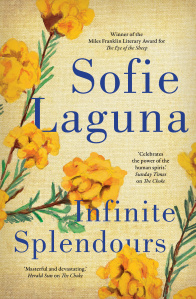
The incandescent new novel from the acclaimed Miles Franklin winner author of The Eye of the Sheep and The Choke.
Lawrence Loman is a bright, caring, curious boy with a gift for painting. He lives at home with his mother and younger brother, and the future is laid out before him, full of promise. But when he is ten, an experience of betrayal takes it all away, and Lawrence is left to deal with the devastating aftermath.
As he grows into a man, how will he make sense of what he has suffered? He cannot rewrite history, but must he be condemned to repeat it?
Lawrence finds meaning in the best way he knows. By surrendering himself to art and nature, he creates beauty – beauty made all the more astonishing and soulful for the deprivation that gives rise to it.
Infinite Splendours is an extraordinary novel, incandescent with love and compassion, rich in colour and character. The power and virtuosity of Laguna’s writing make it impossible for us to look away; by being seen, Lawrence is redeemed.
And we, as readers, have had our minds and hearts opened in ways we can’t forget.
My Thoughts:
**Please note this review contains spoilers**
Up until this point, I wasn’t aware that you could be both captivated and repulsed by a book in equal measure. I’ve read all of Sofie Laguna’s novels so I’m no stranger to her writing and the themes she consistently gravitates towards. But this was hard going. Infinite Splendours, despite its evocative title and splendid cover, despite the indication within the book description that it is a novel about art and redemption, is actually a novel about child abuse that pushes the reader into a very uncomfortable and somewhat disturbing grey area that no one wants to consider. Redemption was absent, and to me, what inspired the art was disturbing.
The first and second parts of the novel were captivating, although, given I’ve read Laguna before, I was filled with a sense of foreboding. But the writing, as to be expected, is exquisite, so evocative and rich in the type of quiet detail that I love, characteristic of the very best literary talent. This is why I return to Laguna’s work with each new release. There were some pointed themes to rise out of these two sections, most interesting to me, was the exploration of the greater ripple effects of war on a nation. Lawrence’s mother, Louise, and his uncle, Reggie, were victims of this. Their mother dead from illness, their father unable to look after them, suffering from PTSD from serving in WWI. They are given to ‘friends’; the inevitable happens, and thus begins a cycle of child abuse that reverberates into the next generation. Louise’s husband in turn is killed while serving in WWII, leaving her a widow and her two young sons fatherless and unprotected.
It would be easy to demonise Reggie, the uncle that comes to stay, ingratiates himself into the family, beguiles a young Lawrence with praise and a nurturing of his artistic talents that was up until that point missing. Reggie’s interest seemed genuine; I feel it was, there was a reluctance within him and his hasty retreat from their lives, to me, indicates a deliberate removal from temptation. But the horror of what he did to Lawrence, physically, and emotionally; he not only stole Laurie’s innocence and trust, he stole the art right out of his life, the art that he himself had encouraged. He utterly ruined this ten-year-old boy, destroyed him completely.
‘I did not paint anymore, although I continued to see opportunities where the search for something unseen might begin. I saw it in chimney smoke, in fallen branches, in spider’s webs. In nests, in rain and in rainbows. I saw it in the range of mountains, in the movement of clouds, in sunlight, in flowers on the branch, the beaks of birds.’
Lawrence goes from being bright and involved to having a stammer, losing all social skills, afflicted by extreme trauma induced anxiety which manifested itself physically, in a most debilitating manner, whereby he relived his trauma each time he had to move his bowels, consequently leading to an eating disorder and bowel misfunction. His brother Paul knew that Reggie had done something to Lawrence, he had never trusted his uncle, but Lawrence couldn’t confide, Paul was eight, and what can a small boy do for another small boy? I believe the neighbour suspected as well, but again, Lawrence would not disclose what had happened, so all she could do was offer a quiet brand of support to him, a safe place for just being. Of course, Lawrence never told his mother. I couldn’t help but judge Louise harshly. Her son changed overnight, in the most dramatic way, and the timing was exact. She knew what her brother endured as a child; she endured it herself. Yet she chose instead to ignore and enable; she spoke for Lawrence, cutting off every stammer; she treated him like a child to the point where if you didn’t consider the trauma, you’d have believed that as an adult he was simple minded. She did more harm to him and created an adult that was ill-equipped for society.
Then, an adult Lawrence meets a ten-year-old boy and it all went south for me. Yes, I am aware of intergenerational abuse, the cycles that people and families get caught in, but it was just too much for me. It was the yearning that was the most unsettling of all, coupled with Lawrence’s inability to adult, and by this, I mean he was actually delusional. It wasn’t straightforward lust and desire or even a need to hurt; it was almost like Lawrence needed to inhabit a ten-year-old boy, to go back to that point in his life where it all changed. But this yearning was sinister, and even when he copped a hiding for it, years later, another ten-year-old boy comes along and it starts all over again, with the exact same outcome. Herein lies all that mucky grey matter we were forced as readers to wade through. Of course, I felt for Lawrence, but I felt for Lawrence the child. Lawrence the adult was too damaged for redemption. He was lost. And he was dangerous. I kind of couldn’t wait to finish this novel, to be honest. But I couldn’t stop reading it either. My only advice with this one is to not be drawn in by the cover and to proceed with caution.



Thanks is extended to Allen & Unwin for providing me with a copy of Infinite Splendours for review.
About the Author:
Sofie Laguna’s first novel for adults, One Foot Wrong, was published throughout Europe, the US and the UK, was longlisted for the Miles Franklin Literary Award and shortlisted for the Prime Minister’s Literary Award. Her second novel for adults, The Eye of the Sheep, won the 2015 Miles Franklin Literary Award and was shortlisted for the Stella Prize and longlisted for the International Dublin IMPAC Award. Sofie Laguna’s third novel, The Choke, won the 2018 Indie Book Award for Fiction, and was shortlisted for the Victorian Premier’s Literary Award, the Voss Literary Prize, the Australian Literary Society Gold Medal and the Australian Book Industry Award, and longlisted for the Stella Prize, the Kibble Award and the International Dublin IMPAC Award. Sofie’s many books for young people have been published in the US, the UK and in translation throughout Europe and Asia. She has been shortlisted for the Queensland Premier’s Award, and her books have been named Honour Books and Notable Books by the Children’s Book Council of Australia.

Infinite Splendours
Published by Allen & Unwin
Released October 2020
January 9, 2021
January 7, 2021
Book Review: Memorial by Bryan Washington
About the Book:
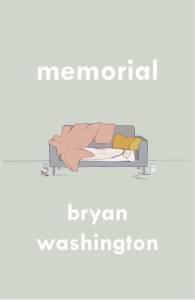
The debut novel from a rising literary star: a funny, sexy, sensual examination of two young men falling in and out of love.
Benson and Mike are two young guys who live together in Houston. Mike is a Japanese-American chef at a Mexican restaurant and Benson’s a Black day care teacher, and they’ve been together for a few years – good years – but now they’re not sure why they’re still a couple. There’s the sex, sure, and the meals Mike cooks for Benson, and, well, they love each other.
But when Mike finds out his estranged father is dying is Osaka just as his acerbic Japanese mother, Mitsuko, arrives in Texas for a visit, Mike picks up and flies across the world to say goodbye. In Japan he undergoes an extraordinary transformation, discovering the truth about his family and his past. Back home, Mitsuko and Benson are stuck living together as unconventional roommates, an absurd domestic situation that ends up meaning more to each of them than they ever could have predicted. Without Mike’s immediate pull, Benson begins to push outwards, realising he might just know what he wants out of life and have the goods to get it.
Both men will change in ways that will either make them stronger together, or fracture everything they’ve ever known. And just maybe they’ll all be okay in the end. Memorial is a funny and profound story about family in all its strange forms, joyful and hard-won vulnerability, becoming who you’re supposed to be, and the limits of love.
My Thoughts:
This one was a mixed bag for me. It started off slow enough that I almost gave up, but pushing on, I sort of fell into it and kept on reading, but even by the end I remained ambivalent.
The one thing I really didn’t like was the lack of quotation marks for dialogue. Now, I know this is an increasing trend, particularly in contemporary fiction, and I’ve read – and enjoyed – plenty of novels written in this style. But it’s not as simple as just leaving them out. There has to be something else, stylistically, to indicate dialogue. Otherwise it just gets confusing. In this book, there just wasn’t enough difference between internal and spoken dialogue, and some of the characters were too much alike to distinguish their ‘voices’. So I ended up having to reread at times, just to get the drift on what was happening. This was definitely a factor that affected my overall enjoyment. Another was how frank it was. I’m just not interested in reading about the mechanics of sex. I understand this was ‘life literature’ and plenty of people’s lives are like that, but it got monotonous and wasn’t particularly interesting in the first place.
However, this novel did have some incredible moments of human connection and these outweighed the negatives enough to carry it through. It also addressed some significant issues to do with diversity and sexuality. Racism was explicitly explored within many thought provoking scenes. Above all though, the relationships between sons and their fathers and sons and their mothers was intimately explored and I loved this aspect of the story, for both Mike and Benson. No surprises then that the part I’ve pulled to share is related to this part of the story.
‘And it was in a drawer that I found a photo of the two of us.
The hoodie I’m rocking looks entirely too big on me. My father’s still got a headful of hair, and some of it sits on his shoulders. He’s smiling way too wide for his face, with his hands under my arms, and I’m sitting on his lap with the ocean and the pier and the whole country behind us. I don’t know if I’m smiling because I was told to or because I was happy, but my father’s expression is entirely unmistakable.
Ma must’ve taken the photo when we were in Cali. I don’t remember her doing that. But I guess that’s the thing: we take our memories wherever we go, and what’s left are the ones that stick around, and that’s how we make a life.
So I’ll take that photo with me.
I’ll say that’s what happened.
It’ll be all that’s left, as I step onto the plane.
And when I land on the tarmac, back on the ground, unbelievably, inconceivably, until the day I die, I am taking my dad home, I am taking him back, he will follow me wherever the fuck I end up next.’
There is a lot of hype surrounding this novel. Reviewers are raving. Barack Obama thinks the author is the bomb. Honestly, it’s no Normal People, not by a long shot, but it’s very ‘real’ and if that’s your preference within contemporary fiction then this one may just appeal to you.



Thanks is extended to Allen & Unwin for providing me with a copy of Memorial for review.
About the Author:
Bryan Washington has written for the New York Times, the New York Times Magazine, New York Magazine, BuzzFeed, The Paris Review, Boston Review, Tin House, One Story, GQ, FADER, The Awl, and Catapult. He lives in Houston, Texas.

Memorial
Published by Atlantic
Released November 2020
January 5, 2021
Book Review: Olga by Bernhard Schlink
Translated by Charlotte Collins
About the Book:

The life of one woman – Olga – from late 19th century Prussia to modern Germany.
A novel of love, passion, and history, from beloved modern master Bernhard Schlink.
Olga is an orphan raised by her grandmother in a Prussian village around the turn of the 20th century. Smart and precocious, she fights against the prejudices of the time to find her place in a world that sees her as second-best.
When she falls in love with Herbert, a local aristocrat obsessed with the era’s dreams of power, glory and greatness, her life is irremediably changed.
Theirs is a love against all odds, entwined with the twisting paths of German history, leading us from the late 19th to the early 21st century, from Germany to Africa and the Arctic, from the Baltic Sea to the German south-west.
This is the story of that love, of Olga’s devotion to a restless man – told in thought, letters and in a fateful moment of great rebellion.
My Thoughts:
This was a gorgeous novel. I don’t think I’ve described many books like that but it’s exactly how I feel about this story. Gorgeous writing assembled into an interesting structure, decadent in detail but never laborious to read. This is a story about love and loss, about truth and integrity, about the way in which the history of a nation can be a heartbreaking burden.
It is told in three parts. The first part is narrated like a story, a little bit like a fairy-tale, truth be told, and we’re not sure until the end of this part who is telling the story and what their relationship to Olga is. With a turn of phrase in the last paragraph of this part, this is revealed, and then we move into part two, with the narrator of the first part narrating the second part, but with a different tense and from his own perspective of Olga. The connection between this narrator and Olga was the weakest part of this novel, I did expect more, something deeper, more specific. The third part is told in Olga’s own words, through a series of letters. These different structures worked well to tell the story of not just Olga, but of Germany across this period of time, from the beginning of the 20th century through to a more modern Germany. As always, I find it particularly fascinating to read books about other nations and their histories but from the perspective of those who have lived it; that’s the real beauty of reading a translation as opposed to a novel merely set in a different country, even if they are well researched.
Bernhard Schlink is an excellent novelist. His prose is mesmerising, the way he weaves his scenery in with his characterisation, the lyrical way his words are arranged on the page, they just flow so easily, making this an immersive and visual read. Through Herbert and Olga, and later, Eik and Olga, he probes Germany’s history without justification or vilification, demonstrating the unique intergenerational burden that exists for many people in modern Germany. Olga was a fantastic character, I admired her greatly, not just for her philosophy about Germany and her personal drive to achieve a good life, but also for the way in which she loved. To love someone greatly yet turn away from them because you are opposed to their beliefs and choices takes monumental courage and a sort of selfless devotion stretching beyond the place where justification fills the gaps of all that is wrong yet ignored for love. Sometimes, as is the case with Olga, love certainly doesn’t conquer all, and nor is it blind.
The origin of the letters was fascinating and I am curious to dig a little to find out if this is actually true. Are there now unclaimed letters and postcards from the wars lying in antique stores, memories for sale? One can’t help the voyeuristic curiosity this generates. But even this is explored, the desire to read the secrets of strangers from the past; Schlink really leaves no stone unturned. I’d love to read more of his work and I recognised one of the covers of another of his novels as one that had caught my eye previously. This is a novel in which the essential aspects of a novel are so perfectly demonstrated; a novel for those who love the novel form. There were many sections I could have quoted throughout this review but I’ll leave you just with this, such a particularly poignant thought expressed by Olga, one of the most divine protagonists I’ve encountered in a long time.
‘They should lie together, she said, and remind us that we are equal in death as in life. Death lost its horror if it were no longer the cruel leveller at the end of a life of inequality, privilege and disadvantage, but simply the continuation of a life in which we were all equal.’




Thanks is extended to Hachette Australia for providing me with a copy of Olga for review.
About the Author:
BERNHARD SCHLINK was born in Germany in 1944.
A professor emeritus of law at Humboldt University, Berlin, and Cardozo Law School, New York, he is the author of the internationally bestselling novels THE READER, which became an Oscar-winning film starring Kate Winslet and Ralph Fiennes, and THE WOMAN ON THE STAIRS.
His latest novel, OLGA, was a #1 international bestseller.
He lives in Berlin and New York.

Olga
Published by W&N
Released 10th November 2020
January 3, 2021
Book Review: Those Who Leave and Those Who Stay by Elena Ferrante
Translated by Ann Goldstein
About the Book:
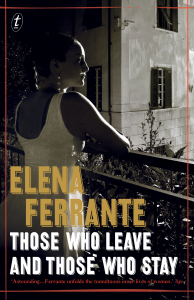
Since the publication of the acclaimed My Brilliant Friend and The Story of A New Name, Elena Ferrante’s reputation has grown enormously. Her novels about the friendship between Lila and Elena, about the mysteries of human relationships, are utterly compelling.
In Those Who Leave and Those Who Stay, the two protagonists are now in their thirties. Lila, married at sixteen, has left her husband and the comforts of her marriage, and has now joined the workforce. Elena has left the neighbourhood in Naples, been to university, and published a successful novel, all of which has brought her into a wealthier, more cultured world. Both women are seizing opportunities to flee a life of poverty, ignorance and submission. Yet they are still very much bound to each other by an unbreakable bond.
My Thoughts:
I abandoned this series after book two, at the beginning of last year, unable to bear anymore of Elena’s simpering and self-pity, along with Lila’s toxicity. What had shone in My Brilliant Friend had significantly dulled in The Story of a New Name. However, I recently watched the television adaptation of The Story of a New Name and really enjoyed it – far more than I had with the book it was based upon. It gave me a nudge to take up the series again, so I picked up book three, Those Who Leave and Those Who Stay.
While I certainly enjoyed this one far more than book two, I won’t be racing to book 4. Not with the way this one wrapped up – good heavens, has there ever been a more annoying character ever than Elena Grecco?! She’s just pathetic beyond all reason. So much so, that I honestly have begun to think that these books would have been so much better written as third person dual narrative instead of the first-person fictional memoir style it inhabits. There’s just too much of Elena circling around the same issues constantly, pitying herself endlessly and blaming either her mother or Lila for everything that’s ever gone wrong in her life. Plus, in this one, we also experience Elena’s ego in monumental doses because of her book being published; it was insufferable. Don’t even get me started on her obsession with Nino, who is seriously not worth the effort.
And yet, I have given this book 4 stars. That’s because in this volume, Ferrante returns to the intricate tapestry of Italy’s political and social history. This entire book is quite political, sometimes in the most detailed of ways, but I really enjoyed that aspect of it. That’s one of the things that sold me so strongly on My Brilliant Friend, that series of snapshots of Italy’s social and political history in motion. And she doesn’t stick with just Naples in this one; we see, as Elena moves around and interacts with others, that what was happening in one province of Italy was happening also in others, likewise, in other parts of Europe. I couldn’t get enough of these sections of the book.
I also enjoyed seeing Lila emerge as a grown woman, taking charge of her own life, progressing forward, on a different path to Elena, but forward nonetheless. I’m still not convinced on the friendship between these two; Elena spends much of the novel wishing secretly that Lila would die while also feeling inferior to her. The two of them are careful with each other; they hold back the things they shouldn’t and wound each other with intent. This doesn’t change the older they get. I enjoyed following the lives of the other characters from the neighbourhood; again, more of this in preference to Elena would have been ideal. There were quite a few amusing moments throughout too, definitely more humour within this one than the previous two.
I look forward to seeing the television adaptation of this one (assuming there will be one), but I’ll hold off on reading book four just yet. There’s only so much of Elena I can take but Elena and Nino combined? No. Just no. I can’t do it.




About the Author:
Elena Ferrante was born in Naples. She is the author of seven novels: The Days of Abandonment, Troubling Love, The Lost Daughter, and the quartet of Neapolitan Novels: My Brilliant Friend, The Story of a New Name, Those Who Leave and Those Who Stay, and The Story of the Lost Child. She is one of Italy’s most acclaimed authors.

Those Who Leave and Those Who Stay
Published October 2013
January 2, 2021
Looking Back: My 2020 Reading Year
One the main reasons I make sure I record every book I read through Goodreads is because I like the way they organise your end of year reading stats. It saves me having to do my own spreadsheet and then there’s the way they collect all the covers of the books you’ve read. I’m a very visual person so this appeals greatly. With switching off from blogging this year between Christmas and New Year, it just occured to me that I hadn’t done my annual reading reflection yet. I do these posts for myself more than anything, just for that look back at what I read and how many books, etc. It’s less about meeting targets and more about enjoying the reflection.
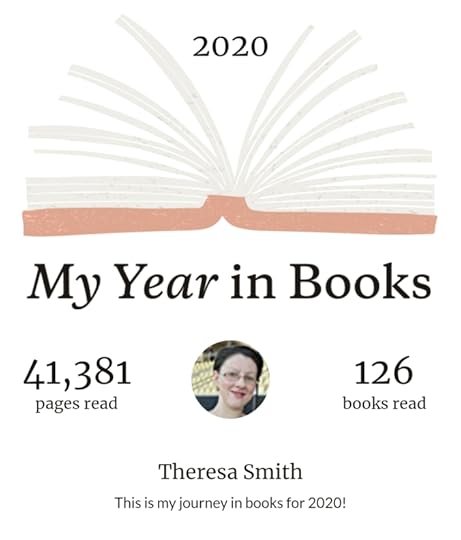
I did set a target of 130 books so Goodreads was commiserating to me and wishing me ‘better luck next year’. Whatever. The target was arbitrary, I never aim for it.
As you can see by my average rating, 2020 was a year of reading good books. It did feel that way as I was going along, so it’s nice to see this confirmed.

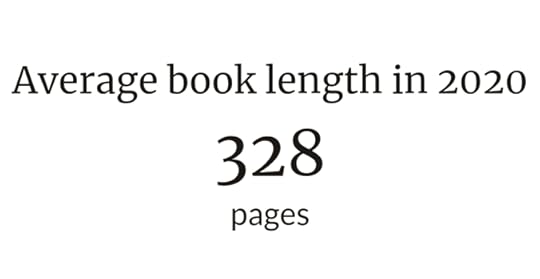
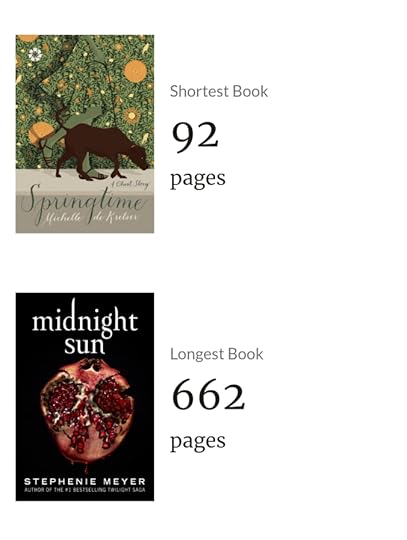
I have noticed each new year that I am shying away from longer books more and more. I think the most obvious reason for this is that it means longer between reviews and that sense of obligation kicks in (obligation to publishers to read more books faster, obligation to followers to publish reviews more often). This isn’t something I get hung up on, but when I see stats like this I can’t help but acknowledge that gravitation towards shorter books.
And now we have the books I read, so I’ll finish up here and thank you all for reading the reviews I wrote on them.
Cheers to a new year of reading! 
January 1, 2021
#6degrees of separation: from Hamnet to Jane Eyre
It’s the first Saturday of the month so that means it’s #6degrees of separation time! This month’s starting book is the winner of the 2020 Women’s Prize for Fiction, Hamnet by Maggie O’Farrell.
You can find the details and rules of the #6degrees meme at booksaremyfavouriteandbest, but in a nutshell, on the first Saturday of every month, everyone has the same starting book and from there, you connect in a variety of ways to other books. Some of the connections made are so impressive, it’s a lot of fun to follow.
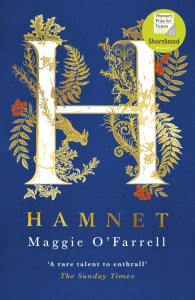
I read Hamnet last year when it first came out and I really loved it. It’s one of those novels I would recommend to everyone. It’s lovely to start a new year of six degrees, not only with a book I have read, but with one I enjoyed so much. However, turns out having read the books doesn’t necessarily make for an easier chain!
My first link is a rather obvious one, but I’m going there anyway. Hamnet is the fictional story of the creation of Shakespeare’s play, Hamlet. From here, I’m cruising over to Ophelia by Jackie French. Jackie has written a fantastic series of novels that are reinterpretations of Shakespeare’s most well known/popular plays, all from a female perspective. While I was searching for a book cover image for Ophelia, I came across this upcoming late 2021 release, The Ophelia Girls by Jane Healey. The description for this sounds very intriguing. It’s caught my eye also because the author, Jane Healey, wrote The Animals of Lockwood Manor, released last year. I enjoyed that book so I’ll likely be reading this one. The Animals of Lockwood Manor had a Kate Morton atmospheric vibe to it and that’s always a selling point for me. I have enjoyed all of Kate’s novels, but my favourite remains The Shifting Fog, which was her first. Truthfully, any novel, particularly historical fiction that orbits around an old manor house is a winner for me. Which brings me to my final connection, which I’m making based on the whole gothic/history/manor link: Jane Eyre, one of the best in its class. Nothing to do with Hamnet though!


